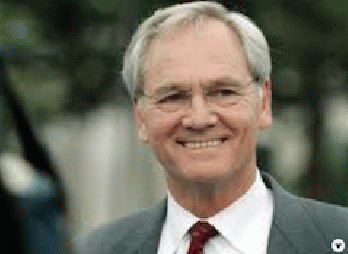My guest today is Legal Schnauzer, Roger Shuler. Welcome back to OpEdNews. You have been closely following the Don Siegelman case. You just wrote Oral arguments in Siegelman case might be overshadowed by reports about magistrate's deceit. The case dates back a number of years and many of our readers have not kept up with it. What can you tell us, Roger?
Siegelman remains incarcerated at a federal prison in Louisiana, but he is seeking a new trial, based primarily on allegations that then-U.S. Attorney Leura Canary had a conflict of interest, did not abide by her recusal, and deprived the former Alabama governor and codefendant Richard Scrushy of their constitutional right to an impartial prosecutor. Oral arguments were heard on Monday, Jan. 12, 2015, at the U.S. Eleventh Circuit Court of Appeals in Atlanta. It probably will be several months before a ruling comes down.
There have been lots of twists and turns along the way. Once, the most popular Democrat in Alabama, having won all four top offices, Siegelman and his case have garnered attention from both sides of the political fence. A bipartisan collection of over 100 former state attorneys general from across the country stood behind him. What was all that about? And isn't it a bit unusual in these days when politicians and political figures can't seem to agree on anything?
I think the bipartisan criticism of the Siegelman case has come because the former governor and codefendant Richard Scrushy engaged in standard behavior in our political system. Scrushy made a $500,000 contribution to an education-lottery campaign, and Siegelman appointed Scrushy to a health-care review board--on which the former HealthSouth CEO had served under three previous governors. That kind of transaction has never been considered illegal, but it was in the Siegelman case. President Obama has appointed donors to ambassadorships and other positions; President Reagan did the same thing. Those appointments never drew the whiff of an investigation, much less an indictment, trial, conviction, and incarceration. So why did it happen to Don Siegelman? The whole ugly process has turned the notion of "equal protection under the law" on its head. That's why many people think this was a political prosecution directed by Karl Rove, who has a long history in Alabama, in order to ruin a Democrat that Republicans couldn't beat in a red state.
Speaking of President Obama, a presidential pardon seems like a no-brainer. Yet, this administration has been hostile to Don and his case. Can you talk about it and any theory you might have about that?
That's tricky. I voted for Obama twice, but I think his performance on justice issues has been dismal. Here in Alabama, our courts (both state and federal) are just as corrupt as they were under Bush II. It's as if Obama does not care about concepts like "due process" and "equal protection," which we find in the 14th Amendment. Pretty amazing that a one-time constitutional scholar, and our first black president, would seem to care so little about notions that help form the basis for civil rights in the U.S. Why has Obama been so hostile toward the notion of a Siegelman pardon? I can only think of two possible reasons: (1) He's concerned about political fallout from the right, whose mostly white supporters already seem to hate Obama because of the color of his skin; (2) The right has some unseemly information about Obama and/or his associates that might get loosed if he pardons Siegelman. I hope there is some third reason I haven't thought of because those two create ugly scenarios, indeed. One positive I can say about Obama on justice issues: He said shortly after being elected that he was going to "look forward, not backward" regarding possible criminality committed under the Bush administration--and the president has been true to his word. Obama's policy is short-sighted and nonsensical--some would argue that it's unconstitutional--but that has been his approach, and he has stuck to it. Don Siegelman, his family and friends, and other victims of Bush-era criminality have suffered because of it. I think the Democratic Party also has suffered, garnering poor election results that would have been much better if the public had been shown the full extent of GOP corruption.
Although you and I have both individually and together covered the Siegelman case for years, many of our readers are surely unaware of more recent developments. Let's talk about your column cited above. Your headline refers to a certain "magistrate's deceit". Can you tell us more about that?
(Note: You can view every article as one long page if you sign up as an Advocate Member, or higher).







